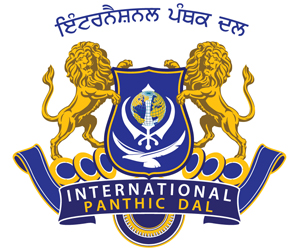David Cameron has become the first serving UK prime minister to pay his respects at the scene of one of the bloodiest massacres in British history.
Mr Cameron is visiting Amritsar in the state of Punjab on Wednesday, at the end of a three-day trade trip to India.
This was where hundreds of people at a public meeting were shot dead by British troops in 1919.
The prime minister described the massacre as “a deeply shameful event in British history”.
Writing in the memorial book of condolence, he added: “We must never forget what happened here.”
He later defended his decision not to offer a formal apology saying the British government had “rightly condemned” the massacre at the time.
“I don’t think the right thing is to reach back into history and to seek out things that we should apologise for. I think the right thing to do is to acknowledge what happened, to recall what happened, to show respect and understanding for what happened,” he added.
By making a statement of regret over the Jallianwala Bagh massacre, David Cameron has opened up a can of other questions and grievances over Britain’s colonial past.”
Andrew North South Asia correspondent, BBC News
What David Cameron did not apologise for UK PMs’ apologies for the past
Thousands of people gathered at the Jallianwala Bagh public gardens in Amritsar on 13 April 1919.
British colonial authorities had banned public meetings and a general was sent in to disperse the crowds.
Without warning, he blocked the exits and ordered his riflemen to open fire. They stopped 10 minutes later when their ammunition ran out.
The death toll is disputed – an inquiry set up by the colonial authorities put the figure at 379 but Indian sources put it nearer to 1,000.
Past prime ministers have expressed their regret, but Mr Cameron is the first to pay his respects at the site in person. The prime minister laid a wreath at the Jallianwala Bagh memorial, bowing his head and standing in silence.
The killings were condemned by the British at the time – War Secretary Winston Churchill described them as “monstrous” in 1920.
During her visit in 1997, the Queen said it was a “distressing” example of the “moments of sadness” in the history between Britain and India.
Mr Cameron wants his visit to focus on more positive ties of history, particularly by visiting the Golden Temple at Amritsar, the holiest site in the Sikh religion.
The prime minister, bare-footed and wearing a blue bandanna to cover his head, also visited the kitchens which feed thousands of pilgrims every day and tried his hand at flipping chapatis.
Later he said: “In coming here to Amritsar, we should celebrate the immense contribution that people from the Punjab play in Britain, the role they play, what they give to our country.
“What they contribute to our country is outstanding and it is important to understand that and pay respect to that and to seek a greater understanding of the Sikh religion and that is why this visit to the holy temple, the Golden Temple, was so important.”
In 1984 the Golden Temple was invaded by Indian troops seeking to flush out militants who wanted an independent Sikh state in the Punjab.
Operation Blue Star enraged many Sikhs and the Indian prime minister Indira Gandhi was assassinated by two of her Sikh bodyguards.
Retired Lieutenant General Kuldip Singh Brar, who led Operation Blue Star, was attacked in London during a visit in October.
Several people are awaiting trial accused of causing him grievous bodily harm. On Tuesday, Mr Cameron held talks with his Indian counterpart Manmohan Singh.








